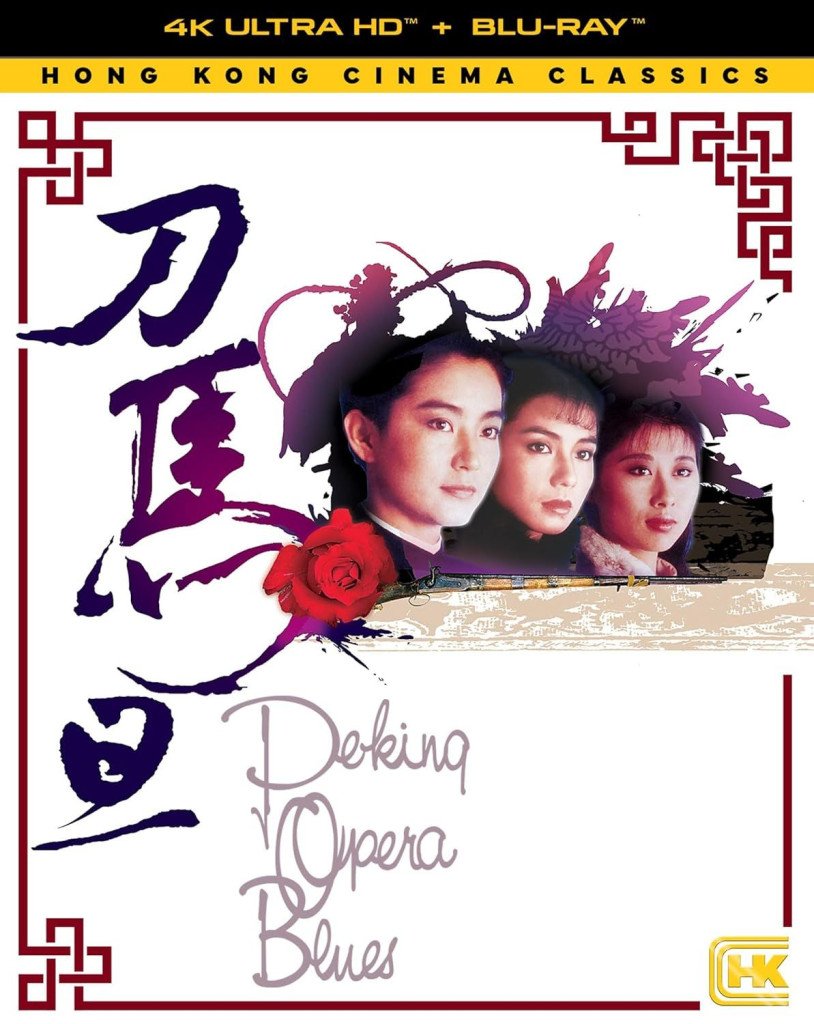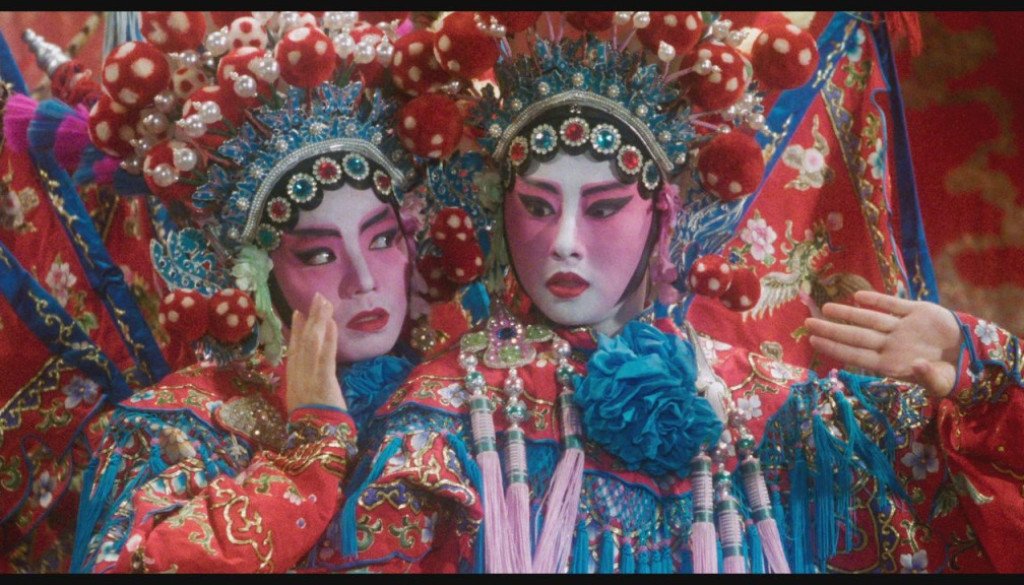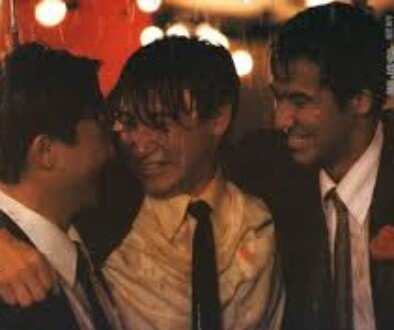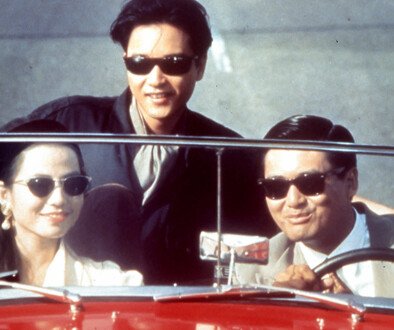PEKING OPERA BLUES – Shout! Review: A Revolutionary Classic In Its Own Right
Tsui Hark’s 1986 period spy adventure, Peking Opera Blues, was something of a change of pace for director Tsui Hark, and there’s a lot to be learned about this film in its 4K UHD/Blu-Ray combo release from Shout! Studios. I’ll happily get to some of those bits later, but it’s worth going over the film for posterity in looking back on one of the finest films ever made to be underwritten by the industry from which it hails.
Peking Opera Blues is set in 1913 as warlords, amoral soldiers and corrupt police control China, while revolution percolates underground. The movie follows the intersecting lives of three different women: Sheung Hing (Cherie Chung), a courtesan looking to get rich quick after an uprising at a mansion by soldiers who themselvee haven’t gotten paid; Tsao Wan (Bridgitte Lin), the short-haired, masculine-presenting daughter of a general who just finished studying abroad and is back home at Peking by her father’s side; and Bai Niu (Sally Yeh), whose strict father runs an opera theater and forbids her from joining his all-male troupe.
Raymond To’s script lends an insightful view into an era of Chinese history and culture, one wherein gender roles were prominent even for Peking performers with effeminate mannerisms. One aspect of this that’s explored pertains to the head of the secret police and his fixation on the opera house’s star performer, which actually plays a crucial role in the film’s narrative themes and overall plot development.
This is where Ling (Mark Cheng), a revolutionary soldier comes in and whose mission it is to aid a key member of their group in obtaining documents from the general’s home. This, coupled with Hing’s desperate search for a box of wrangled jewelry to help sustain her wealth, along with Niu’s efforts to partake in her father’s show, are all brought full circle as their fates intertwine with one another, ensuing a slew of espionage and breakneck thrills full of hijinks and close calls, all leading up into a ballistic rooftop showdown between our heroines, and the incorrigible secret police.
I digress from divulging too much about some of the other relationships that bloom here and other key portions of the story, but it’s a beautiful culmination of cinematic ingredients that truly hit the ground running. It’s high-energy and almost non-stop to a fault, and if you watch enough Hong Kong cinema, then you can certainly understand the kind of tone and pacing that recurs with these kinds of films. It’s fast, and at times voluminous, and even heartwarming in its unfolding with a few sprinkles of romance but nothing too immersive, and with action sequences and opera gags coordinated by Ching Siu-Tung that leave you on the edge of your seat, you can’t go wrong.
Anchored by a handful of notable venerated co-stars like Wu Ma, Kenneth Tsang and Ku Feng, Peking Opera Blues is an absolute delight. Inspirational and criminally overlooked by critics at the time, the film expounds with emotive veracity on what it means to live your truth no matter the odds or the forces at work.

The extras are brimming on this bundle from Shout! which comes with a 4K UHD and Blu-Ray. Both have language and subtitle options, as well as the obligatory commentary track here from author and film expert James Mudge. I couldn’t listen to the commentary due to time constraints, but I typically enjoy commentaries when not pressured by time and other obligations and Mudge is a man who knows his stuff.
On Blu-Ray for Peking Opera Blues, the extras are packed to the hilt beginning with a twenty two minute interview with co-star Mark Cheng in “An Opus For Peking: Starring In A Tsui Hark Classic. At twenty-two minutes, Cheng talks about the state of the industry in addition to Hark’s status and the process of competing for different roles with actor Chow Yun Fat which I thought was interesting among other things. “An Operatic Achievement” features an eleven-minute interview with cinematographer Ray Wong Chi-Wai about the production, and about working with the headlining women of the set who he says were very upbeat and easy to work with when it came to doing some of their own stunts.
Grady Hendrix kicks things into high gear with “Hong Kong Confidential,” a fourteen minute essay about the movie and the auteur at the helm, followed by a twenty-five minute interview with film expert and historian David West for “Peking Provocations – The Cinema Of Tsui Hark,” along with a scope further into the subject matter by historian Lars P. Laamann in “Peking History Blues: The Setting And Time Of A Tsui Hark Masterpiece” at twenty-four mins.
That’s a total of ninety-six minutes of extras for an all-you-can-eat buffet of goods to celebrate this film’s pristine release in the U.S. from Shout! Factory, along with a gallery of more than a hundred photos, and a theatrical trailer to boot. The extras go into the “why” behind the negative industrial reception of this film compared to audiences overseas, which really is a fascinating addendum to a classic like this.
Tap here and buy Peking Opera Blues now from Shout! Factory, or you’ll be left with some blues of your own.
Native New Yorker. Been writing for a long time now, and I enjoy what I do. Be nice to me!





